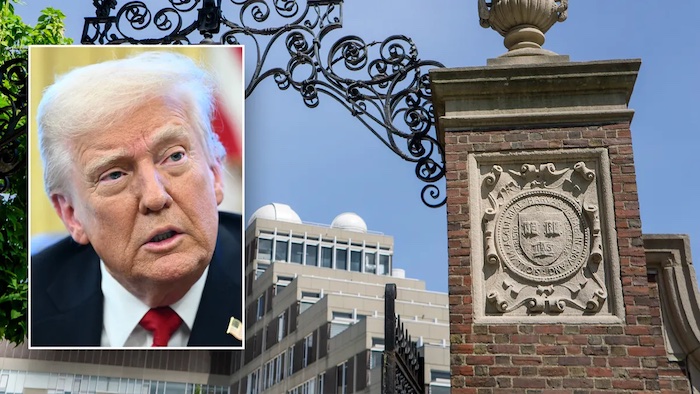Harvard University on Monday firmly rejected a list of demands from the Trump administration, warning that compliance would effectively cede control of the institution to a politically motivated federal government. The decision came just hours before the administration announced it would freeze $2.3 billion in federal funding allocated to the university.
The funding halt follows last month’s announcement by President Donald Trump’s administration that it was reviewing $9 billion in federal contracts and grants awarded to Harvard, part of a broader effort targeting what officials claim is a rise in antisemitism on college campuses—especially in the wake of pro-Palestinian protests over the past 18 months.
A task force within the Department of Education accused Harvard on Monday of reflecting “a troubling entitlement mindset” and suggested the university believed it could receive federal funds without ensuring compliance with civil rights laws.
In a public letter, Harvard President Alan Garber pushed back forcefully, arguing that the administration’s demands would undermine the university’s independence and mission.
“Accepting these terms would allow the federal government to control the Harvard community,” Garber wrote. “It would compromise our identity as a private institution committed to the pursuit, production, and dissemination of knowledge.”
The standoff marks a dramatic escalation in the Trump administration’s widening crackdown on elite academic institutions, many of which it views as politically biased and insufficiently responsive to campus antisemitism. Federal funds have already been withheld from several other universities under similar claims.
In addition to funding freezes, the administration has also begun deportation proceedings against several foreign students detained for participating in pro-Palestinian demonstrations. Visas for hundreds more have reportedly been canceled, sparking concerns among academic and civil liberties groups.
Critics of the administration’s actions say the measures threaten core principles of academic freedom and free expression, and warn that the campaign may set a dangerous precedent for federal interference in higher education.
For now, Harvard remains defiant, signaling it will continue to resist what it views as politically driven overreach, even as the financial and legal stakes continue to rise.



























